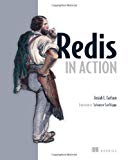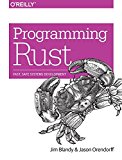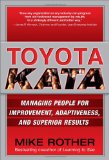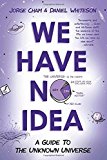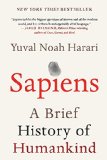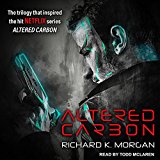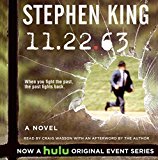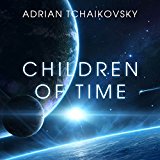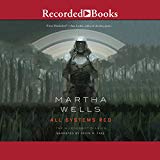The Best Books I Read in 2018
I have read many books in 2018; some good and some not so good.
Here are the books that deserve to be acknowledged. There is no particular
order.
I broke down my recommendations by categories: technical,
non-fiction and fiction.
I have similar posts for 2015, 2016 and 2017.
Technical
Redis in Action
I feel that Redis is misunderstood. What can it do? What is it for? What about persistence?
Redis has a few in-memory data structures. Each data structure supports a few operations. Most tutorials will cover those and send you on your way. It’s easy to dismiss Redis as too simple.
But if you’re building distributed systems – and what modern application isn’t to some extent? – you want to lean on people who have “been-there, done-that” before.
Redis in Action reads like a bunch of war stories on how not to implement systems in Redis. Then it walks you through the problems and the “right way” to do things. I loved Designing Data-Intensive Applications last year, and Redis in Action reminded of that book. I can’t get enough of stories on how to build real systems.
The book is available for free online, see below.
Programming Rust
A language that doesn’t affect the way you think about programming, is not worth knowing.
Rust: the language everybody is talking about. Or that’s how it feels. I wanted to know what the big deal was, so I picked up this book to get an overview.
Maybe this isn’t an endorsement of this book as much as the Rust programming language itself. Wow… most languages seem like a mix of good and bad things, but Rust seems polished. The syntax makes sense, the standard library is full of useful things, its designers have thought about things I hadn’t.
The “big idea” behind Rust is about creating a modern language without garbage collection. It’s a compromise between usability and performance, but I think Rust really nailed it. The compiler keeps track of what code owns a piece of memory, so it knows when it can deallocate it. This is all done automatically, at compile time.
If you’re intrigued … you might want to go read up what all the fuss is about.
Non-Fiction
Toyota Kata
I have read many books about Toyota and I always find them interesting. But, with so many books about Toyota, what else is there to talk about?
Many companies read about Toyota, implement some of the solutions but they don’t necessarily work. The main insight is that people focus on what Toyota does (kanban, for example) without trying to understand how Toyota came up with that solution. The “Toyota Way” is a way of thinking rather than a series of practices.
One story in the book struck me, consultants being upset at Toyota employees:
…a few years ago you were doing X, but now you’re doing Y?! Which one is right?
The solutions change because the problems change.
No wonder the Japanese can open their factories to visitors… the secret isn’t what they do, it’s how they decide what they do.
We Have No Idea
I love “explainers”; the people who explain topics in a way that anybody can understand. There’s too much to learn and not enough time. If someone can do the research and give me a good overview in a fraction of the time, that’s awesome.
It also means that these overviews are often “shallow” and “oversimplified”… but I think that’s a reasonable compromise. You can always dig deeper if you find it interesting.
We Have No Idea focuses on physics and tries to explain:
- dark matter
- dark energy
- elementary particles
- space
- time
- and more…
There is so much we don’t know … and I wasn’t fully aware of that until I read this book. If you thought we had physics “solved” and the main questions answered, this book will give you a fresh perspective.
Here’s an example of what’s covered in the book:
Sapiens
Sapiens … the unavoidable? At one point, it was everywhere and it seems like everybody was reading the book.
In a way, Yuval Noah Harari is another “explainer”. This book is FILLED with interesting ideas … about things I never thought about.
It’s a history book; it describes what happened but also covers why. It also has an overarching theory of everything which is very satisfying. Suddenly, a lot of things make sense.
My complaint is the same I have with other “explainers”… when it came to topics I am already familiar with, I found the coverage to be superficial (other books did it better!) and misleading (it’s not the full story!).
Fiction
Altered Carbon
Series: 3 books, complete.
When I searched for “recommended science fiction”, Altered Carbon often made the short list. When I heard that it was coming to Netflix, I decided to read it first.
In a way, it’s a classic “detective story”. There’s been a murder, nobody can figure it out, an “expert” is brought in … you follow along and the conclusions are shocking. Maybe you beat yourself up for not figuring it out yourself. (it was so obvious in retrospect!) Since this is science fiction, there is an interesting twist: the client is looking for an explanation for why he was murdered a few days before.
Although the story follows familiar detective novel lines, I think the appeal of the book is the exploration of “what does it mean to be you?” In the world of Altered Carbon, you can transfer your conciousness to different bodies:
- what does it mean to be a man/woman when you can transfer bodies?
- what does race mean when you can transfer bodies?
- what does it mean to live forever by jumping from an older to a younger body?
- who’s the real you if your conciousness exists in multiple bodies at the same time?
- what is death if you can wake up in another body after a few “lost” hours?
Altered Carbon was written in 2002, and it feels a bit dated now. Most of these themes have been picked up in other books. I think it was more shocking/revolutionary when it came out.
There are 2 other books in the series, but I think Altered Carbon stands by itself. I don’t think it’s necessary to read the sequels.
11.22.63
I have a history with Stephen King … some of the first “serious” books I read were from him. Even though I enjoy his writing, it’s not a style I automatically reach for.
Many people mentioned 11.22.63, so I decided to give it a try. It had been a while since I had read Stephen King and I had forgotten how … rich the universes he constructs are. More than most authors I read, I really feel the characters and places he describes. He made me feel nostalgia for 1958!
If you could travel back in time, could you save Kennedy? Without giving away too much – what if time itself were the “bad guy”?
Most horror leaves me feeling hollow: many people died, some survived … it’s often disappointing. This book is no different … but the writing is so rich and full that it makes me forgive.
Children of Time
The reviews looked good, but it was just one book. If I didn’t like it, it would only be one book. But if I liked it, it would still be only one book… (a typical fiction-picking dilemma)
In the far future, the last humans and uplifted spiders come head to head in a conflict for survival.
- do humans deserve a second chance?
- is human survival worth destroying the chance of other species?
Similar to other books covering extremely long timelines, there is plenty of interesting ground to cover. I enjoyed reading even though I wasn’t sure where it was headed.
Also, I found the ending satisfying and that’s worth a lot.
Ball Lightning
After The Three-Body Problem series, I was willing to give anything Cixin Liu writes a go. This is a self-standing book, but also a sort of (optional) prequel to the Three-Body series.
While reading the first part of the book, I was reminded of the feelings I had when I read Cixin Liu before:
- this is boring…
- where is this going?
But, like before, even the irrelevant parts all came together into “oh shit!” moments later on. Some fiction is enjoyable even if predictable … in some ways, this is the opposite. You go along for the ride because it takes you places you never thought about.
This one isn’t for everybody. I would start with Three-Body and pick this one up if you’re hungry for more.
All Systems Red
Series: 4 books, complete.
Ah… the Murderbot Diaries. If robots that have sex are “sexbots”, robots that murder would be “murderbots”.
Imagine that you are a security cyborg, that you hacked your own software so you could make your own decisions. You kill (or protect) people for a living, but would rather watch soap operas. There’s a bit more to it than that.
The books are short and hard to put down once started. They explore different non-human perspectives on being alive. This is a hard one not to recommend.
Closing Thoughts
If you have liked this blog post, please write your own. I want to read your book reviews and recommendations.
